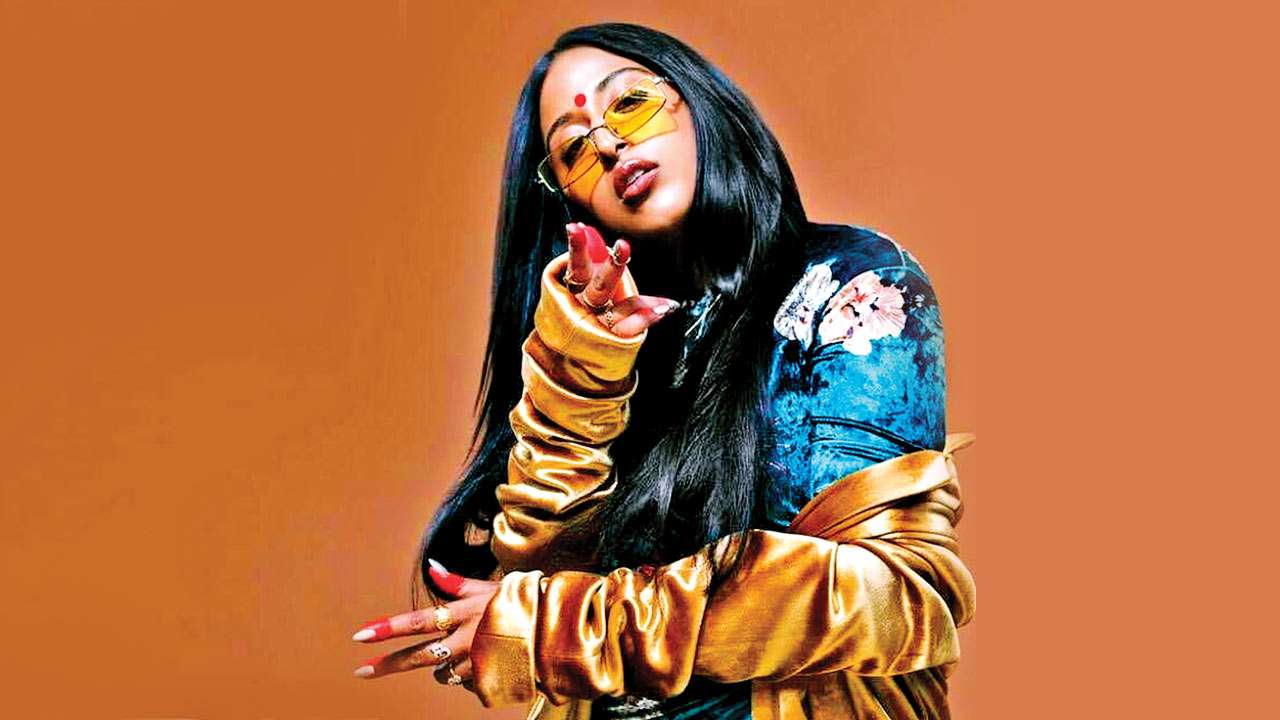
When Raja Kumari took the stage at the third edition of the Serendipity Arts Festival in December in Goa, she had the crowd hooting. Seated behind this enthralled crowd, was an audience waiting to see what this artist, dressed in all-black with neon contours, neon sindoor, knee-length boots and eccentric jewellery is going to perform. After a few “Get up, Goa! Don’t be seated!” Raja Kumari quit nudging after a while and delivered to the audience in anticipation.
Later, she tells this writer that a seated audience isn’t new to her. “I come from a classical [music and dance] background, where people enjoy shows seated. If you were standing during my Kuchipudi performance, it’d be strange!”
Raja Kumari (RK) was making music much before fans of the Indian rap scene took notice. Before she started rapping, RK, whose real name is Svetha Rao, collaborated with notable international artists such as Gwen Stefani, Iggy Azalea, Fifth Harmony, and Fall Out Boy among others working on background vocals and co-writing. Through collaborations with Indian underground rapper Divine to produce City Slums (2016) and Roots (2018), she became a household name garnering praises.
With two records (both artistes signed to Sony Music) RK believes they have similarities. “We share the same goals for the scene. Our first record together [City Slums] changed my life! And I perform it whenever I get the chance.” Indeed. Dropping in between Raja Kumari’s set, as complete surprise treat, was Divine – the OG Gully Boy.
Dancing, singing, songwriting and rapping, how have these culminated into RK on stage, we ask.
“For me, there is no separation in the different types of art. I just try to be an artist. Even my outfits, on stage or otherwise, are a part of my artistry,” she tells us.
Being an Indian is not only her inspiration but her identity. Yet, there are times when she has to tackle some nuisances. “I am often confronted with this idea of Indianness and how Indian is one to be. For instance, in marketing, when people question, ‘Is this too Indian?’ Like you never tell a black person to tone down their blackness!” she retorts.
In her latest single titled Shook, RK giving it back to her “homeland” and growing her audience. “Everything I have released before Shook has come from India [Sony Music]. Shook is produced by Epic Records in the US and for me, is about representation of my people. When I get on the stage, I make sure to get on for my people. Through ER, Shook reaches a larger audience world over.”
This brings our discussion to Indian rap scene’s hot topic: labels. While rappers like Raftaar and Divine have taken pride, even offered justifications, in getting signed by labels, others like Emiway Bantai have criticised the practice – labels deteriorate the quality of music of an independent artist. But RK had her mind set: “I wanted my music to touch people at a big level. In order to do that, one has to partner up with the big guys [labels]. However, all artistes are different and it is an individual journey. But I sure enjoy being signed!”
So what’s in the pipeline?
“An album titled Bloodline. It has me rapping more than singing – I’ve really hit the bars here. So if you enjoy me rapping, look forward to this!”
We already do!